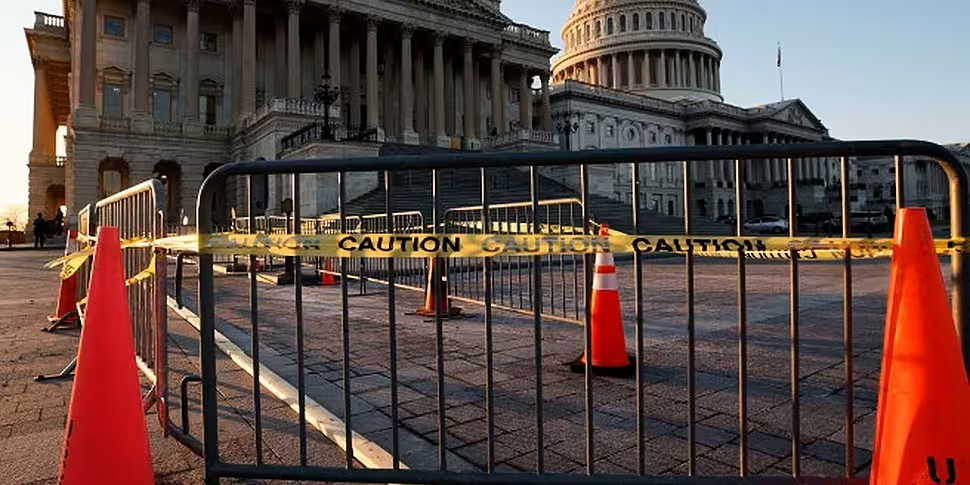Updated 10.55
The US government shut down for the second time in less than a month after Congress failed to pass a key vote on the budget before a midnight deadline.
Politicians had hoped to approve a funding plan before the deadline (5am Friday Irish time) - but midnight passed without the legislation being approved.
The bill ultimately passed through both houses of Congress in early morning votes - with the House of Representatives approving the vote by 240 votes to 186 at around 5.30am local time after an earlier Senate vote.
Just three weeks ago, a similar failure to agree on a new budget in January resulted in a US government shutdown for three days, with scores of federal agencies across America unable to continue operating.
The overnight delay and latest shutdown began when Republican Senator Rand Paul raised concerns about US debt and blocked a speedy vote on the bill, insisting the chamber vote on his amendment to set strict budget caps.
Two hours after that setback, congressional leaders in the Senate scrambled to end the standoff and senators eventually voted 71-28 to approve the $400bn budget deal, with the bill moving to the House of Representatives for a further vote.
However, it was initially unclear whether the bill would pass through that House - with Democratic politicians increasingly opposed to the bill over its failure to provide reassurances for young undocumented immigrants known as Dreamers.
Dozens of conservative Republicans also opposed the bill, objecting to rising US debt levels.
However, a majority of Republicans and minority of Democrats ultimately voted to pass the bill and end the five-hour shutdown before the Friday workday began.
Budget
Without some type of funding bill, the failure to agree on a new budget means the US government technically ran out of money.

US Senator Rand Paul walks to his office after speaking in the senate floor, at the Capitol Building, 08-02-2018. Image: AP Photo/Jose Luis Magana
After his Senate delay, Mr Paul tweeted afterwards: "Yes, I want a strong national defence. I believe it's actually the most important thing the federal government does. But you have to ask yourself whether a $20 trillion debt makes us a stronger country or a weaker country."
He added: "Are we to be conservative all the time, or only when we're in the minority? Now some will say, ‘We must govern.’
“My question about governing is; ‘does governing mean abandoning one's principles?’"
He noted that he didn’t come to Washington to be “part of somebody’s club” or “to be liked.”
Mr Paul later tweeted:
Tonight, you could feel the frustration and embarrassment growing in Congress as we exposed the hypocrisy of Republicans who are joining in an unholy alliance and spending free-for-all with Democrats at the expense of the American people and our party’s supposed principles.
— Senator Rand Paul (@RandPaul) February 9, 2018
He added: "Make no mistake, I will always stand up for fiscal responsibility, regardless of which party is in power, and I will continue to call the Republican Party home to the ideas that led to Americans trusting us with government in the first place."
The bill hikes defence and domestic spending by almost $300bn over the next two years.
With no plans for other spending cuts or new tax revenues, that additional spending would be financed by borrowed money - something both Democrats and Republicans in the House of Representatives have voiced disapproval of.
However, the White House signalled its optimism of the shutdown being short, calling it a "lapse."
The bill passed this morning also funds the US government for another six weeks to allow for a longer-term spending agreement for the rest of the fiscal year.









